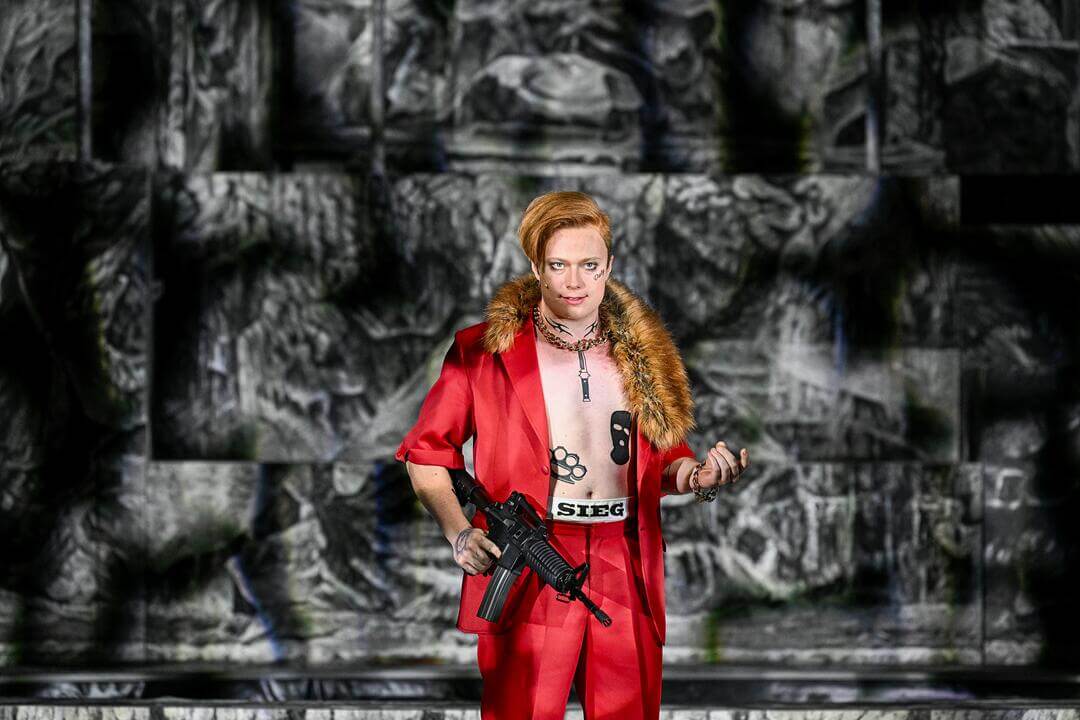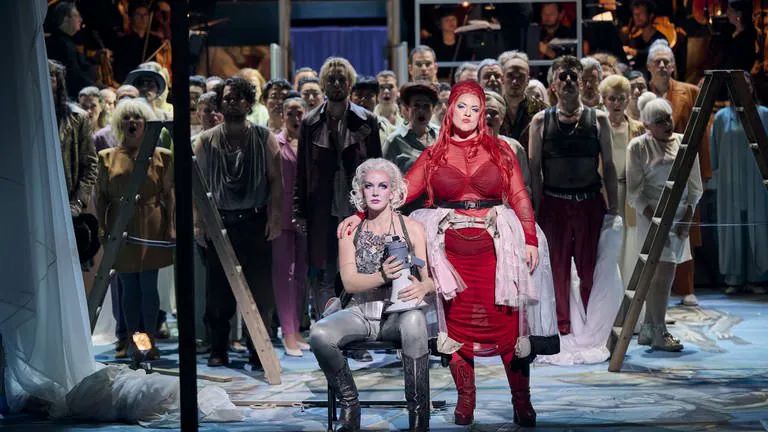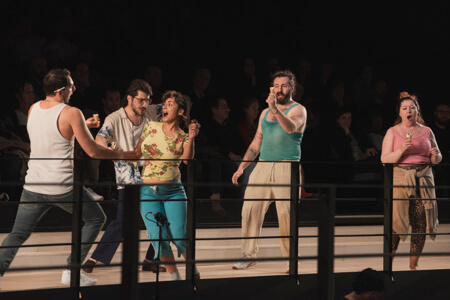Director Volker Lösch is well-known for productions that engage energetically with the politics of the day. In collaboration with author Lothar Kittstein and dramaturg Jörg Bochow, Lösch has premiered at Staatsschauspiel Dresden a reframing of Die Dreigroschenoper as a power struggle within the far-right of contemporary Germany. Rights holders of the work—including Brecht’s heirs, Suhrkamp Verlag, and the Kurt Weill Foundation—approved this radical adaptation of the spoken text on the condition that lyrics and music remain untouched in their original form. Critical reaction to the Dresden production has provoked strong, if contradictory, feelings. Some evaluated the result as, in the words of Sebastian Thiele of the Sächsische Zeitung, “an impressive artistic and political evening of theater in the spirit of Brecht.” There were strong counter-voices, however, including Michael Laages in Die Deutsche Bühne, who asked: “Did Brecht really deserve this? No. At least as shocking and horrible as the staging is the exuberant cheering in the hall.” The national news magazine Spiegel ran a major article on the production just before the opening. Author Wolfgang Höbel suggested that the radical changes made to Dreigroschenoper by Lösch’s production were a kind of “test run” of conditions after 2026, the seventieth anniversary of Brecht’s death and the point at which copyright on some of his works will expire in some territories. The article correctly identifies Elisabeth Hauptmann as a “co-author” of Dreigroschenoper. Her death in 1973 ensures copyright protection of the entire work through at least 2043 in Germany, the European Union, and many other countries worldwide. (For a summary of the complexities of copyright involved in Weill’s catalog, read more here.) | 










